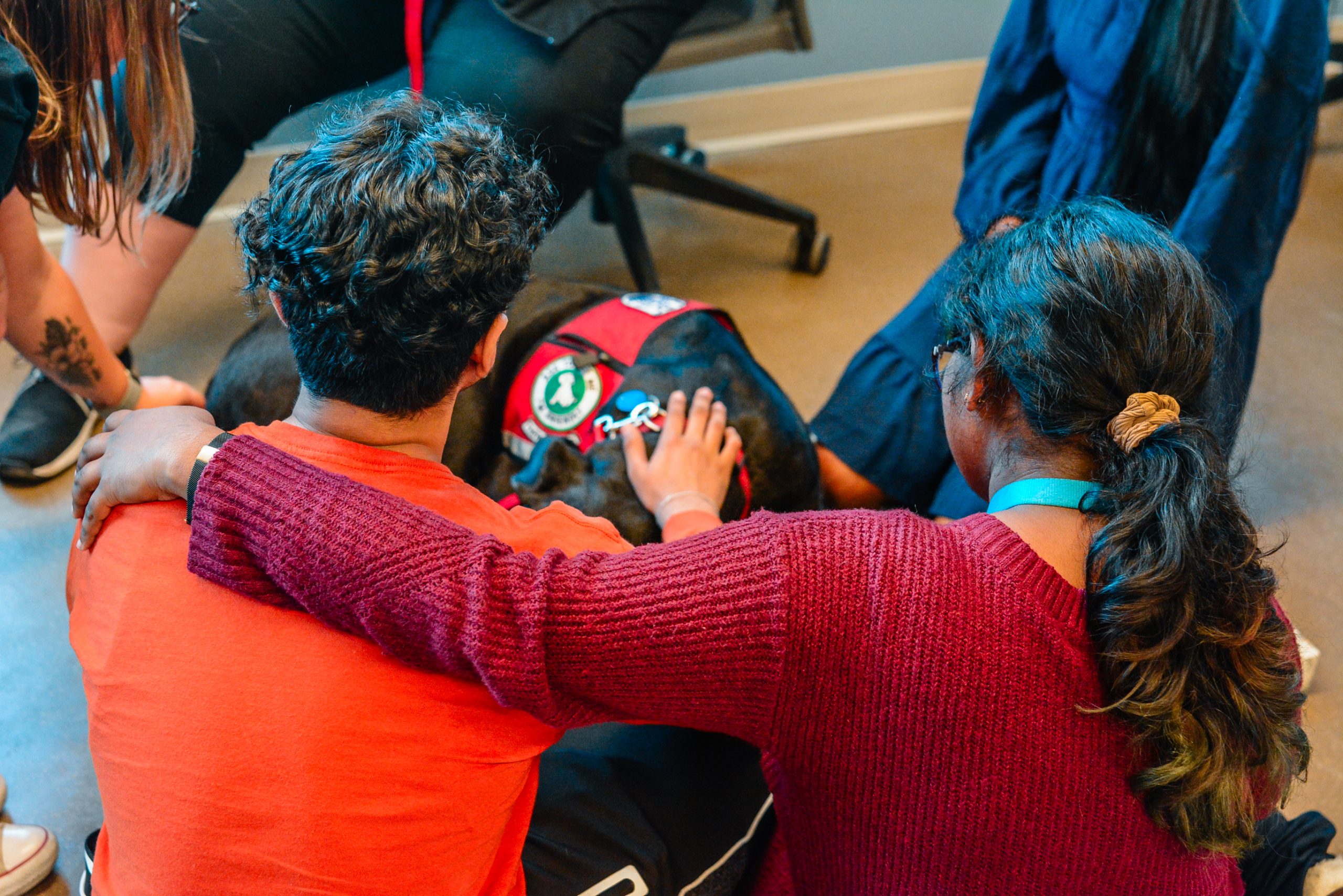In his latest Psychology Today article, Feeling Lonely on a Crowded Campus? Therapy Dogs Can Help, Dr. Binfet recognizes that university/college students experience high rates of loneliness and highlights the importance of students seeking opportunities to get connected with peers on campus.
 “It’s paradoxical that students on college campuses report high rates of loneliness in light of the many opportunities they have to meet new people and forge social connections. Nevertheless, students aged 15-24 report high rates of “always or often feeling alone.” – Dr. Binfet.
“It’s paradoxical that students on college campuses report high rates of loneliness in light of the many opportunities they have to meet new people and forge social connections. Nevertheless, students aged 15-24 report high rates of “always or often feeling alone.” – Dr. Binfet.
One accessible, low-cost, and low-barrier resource increasingly found on university and college campuses are canine-assisted interventions or canine-visitation programs. These programs see therapy dogs brought to campus, often as a means of stress-reduction. Such programs provide opportunities for students to connect with therapy dogs, their handlers, and other students on campus.
Researchers examining the outcomes derived from canine-assisted interventions talk about therapy dogs as being a “social lubricant” or “social catalyst” – that is, they have the ability to render people at ease and provide a way for people to meet others whose paths they may not otherwise have crossed. “Repeat visits to such programs can result in students feeling a sense of community and building their social capital by establishing connections to others”
If you’re reading this and you’re a student who’s feeling lonely, consider attending one of the dog-therapy stress-reduction sessions offered at your college. Make use of your on-campus resources, including the college’s therapy dog program, and let the dog do the heavy lifting to connect you to others.” – Dr. Binfet.
Check out Dr. Binfet’s latest Psychology Today article to learn more about canine-assisted interventions, the B.A.R.K. program, and how to connect with peers on campus.
You can also keep up with the B.A.R.K. program on Instagram @barkubc!
Photos by Freya Green.